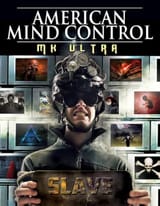Search Results
6/13/2025, 1:34:15 PM
>>712530842
You Were Never in Control – Mind Control, Hidden Scripts, and Player Manipulation in Modern Games
>1. False Freedom in Modern Games
The player thinks they have a choice. But in reality, everything is scripted to provoke specific emotional reactions (rage, submission, false victory).
BioShock: "Would you kindly," pure behavioral programming.
Spec Ops: The Line: The player unwittingly becomes an accomplice.
The Stanley Parable: Pure satire on the illusion of choice in game design.
>2. Invisible Scripts: Input Rigging and Rage Crafting
Some competitive games intentionally create sequences of frustration to boost engagement or microtransactions.
FIFA, NBA 2K, Call of Duty: Warzone: Persistent accusations of "momentum" or "scripting."
There are official patents for "dynamic difficulty adjustment" from EA and Activision.
>3. Satanic and Occult Messages in the Setting
Esoteric symbols are hidden in game assets. Coincidence? Not always.
Binding of Isaac: heavily laden with Kabbalistic references, goetia, etc.
Assassin's Creed: Illuminati symbols, Eye of Horus, pyramids everywhere.
Doom / Diablo: pentagrams, coded incantations, etc.
>4. Children, Trauma, and Predictive Programming
Some games depict children in grim situations, but in a subtly normalized way.
Pokémon Lavender Town: anxiety-inducing music + urban legend of suicide.
Five Nights at Freddy's: lore based on child murders, but never directly shown.
Mother / EarthBound: subtext about rape, distressing motherhood, and paranoia.
>5. Reversed or Hidden Religion
Many games play with reversed Christian, Islamic, or esoteric symbols.
Zelda Ocarina of Time: ancient religious chants Islamized.
Silent Hill: distorted pseudo-Christianity + theories of personal hell.
Hitman: use of churches or holy symbols in scenes of carnage.
They made you think you were playing.
You were doing exactly what they wanted.
You ragequit? That's expected. You spend? That's expected.
You Were Never in Control – Mind Control, Hidden Scripts, and Player Manipulation in Modern Games
>1. False Freedom in Modern Games
The player thinks they have a choice. But in reality, everything is scripted to provoke specific emotional reactions (rage, submission, false victory).
BioShock: "Would you kindly," pure behavioral programming.
Spec Ops: The Line: The player unwittingly becomes an accomplice.
The Stanley Parable: Pure satire on the illusion of choice in game design.
>2. Invisible Scripts: Input Rigging and Rage Crafting
Some competitive games intentionally create sequences of frustration to boost engagement or microtransactions.
FIFA, NBA 2K, Call of Duty: Warzone: Persistent accusations of "momentum" or "scripting."
There are official patents for "dynamic difficulty adjustment" from EA and Activision.
>3. Satanic and Occult Messages in the Setting
Esoteric symbols are hidden in game assets. Coincidence? Not always.
Binding of Isaac: heavily laden with Kabbalistic references, goetia, etc.
Assassin's Creed: Illuminati symbols, Eye of Horus, pyramids everywhere.
Doom / Diablo: pentagrams, coded incantations, etc.
>4. Children, Trauma, and Predictive Programming
Some games depict children in grim situations, but in a subtly normalized way.
Pokémon Lavender Town: anxiety-inducing music + urban legend of suicide.
Five Nights at Freddy's: lore based on child murders, but never directly shown.
Mother / EarthBound: subtext about rape, distressing motherhood, and paranoia.
>5. Reversed or Hidden Religion
Many games play with reversed Christian, Islamic, or esoteric symbols.
Zelda Ocarina of Time: ancient religious chants Islamized.
Silent Hill: distorted pseudo-Christianity + theories of personal hell.
Hitman: use of churches or holy symbols in scenes of carnage.
They made you think you were playing.
You were doing exactly what they wanted.
You ragequit? That's expected. You spend? That's expected.
Page 1
